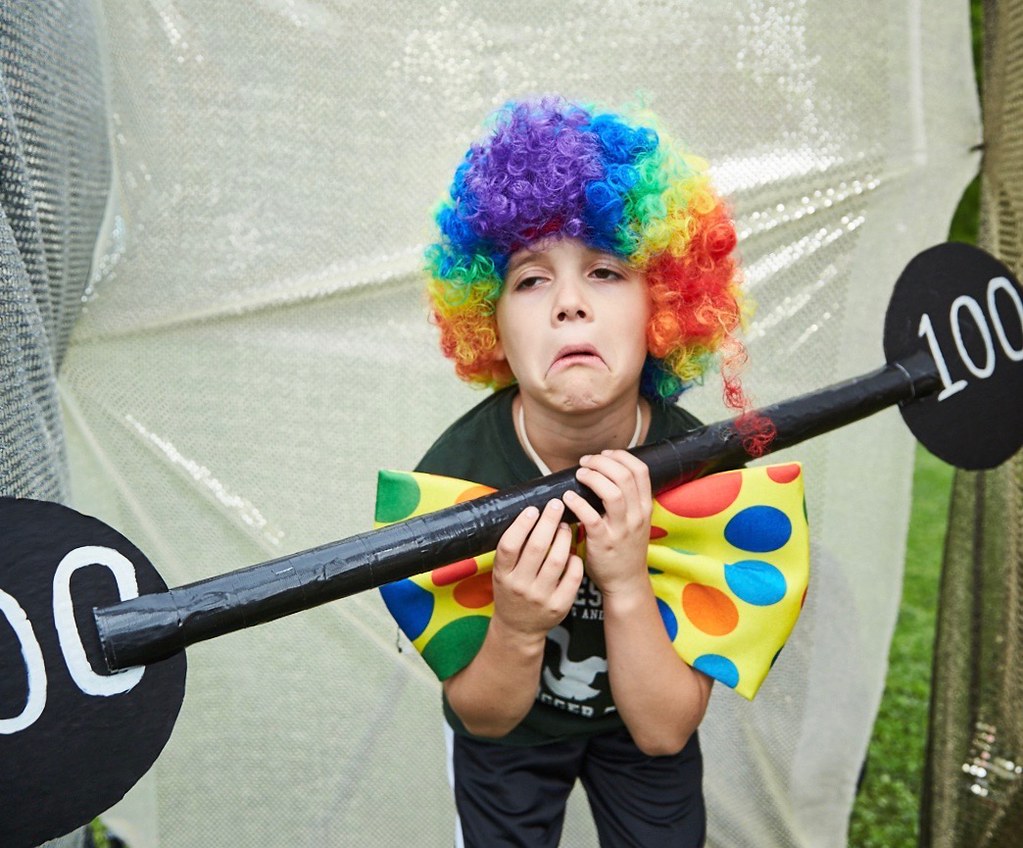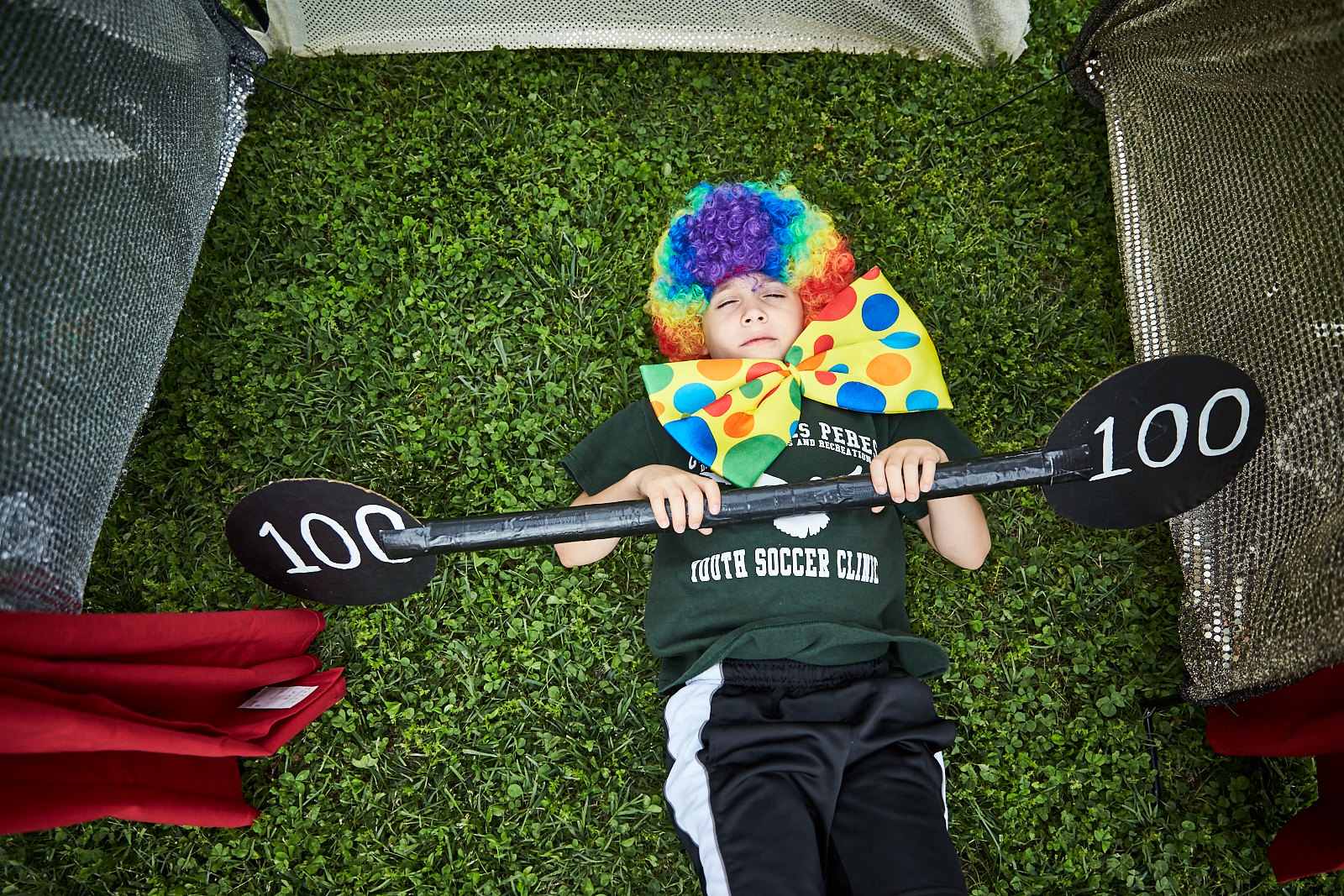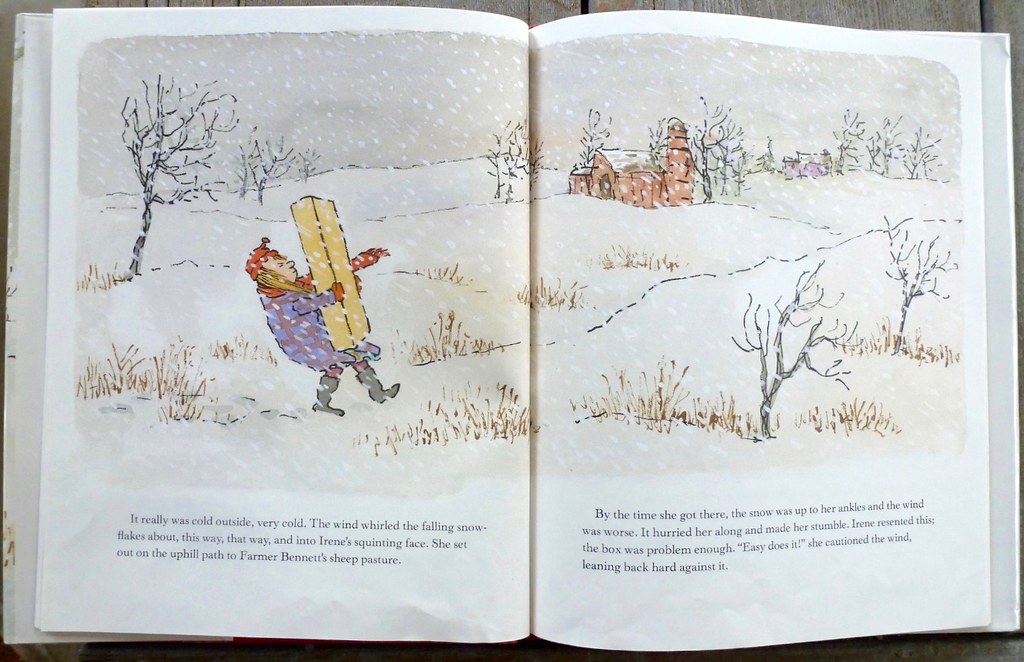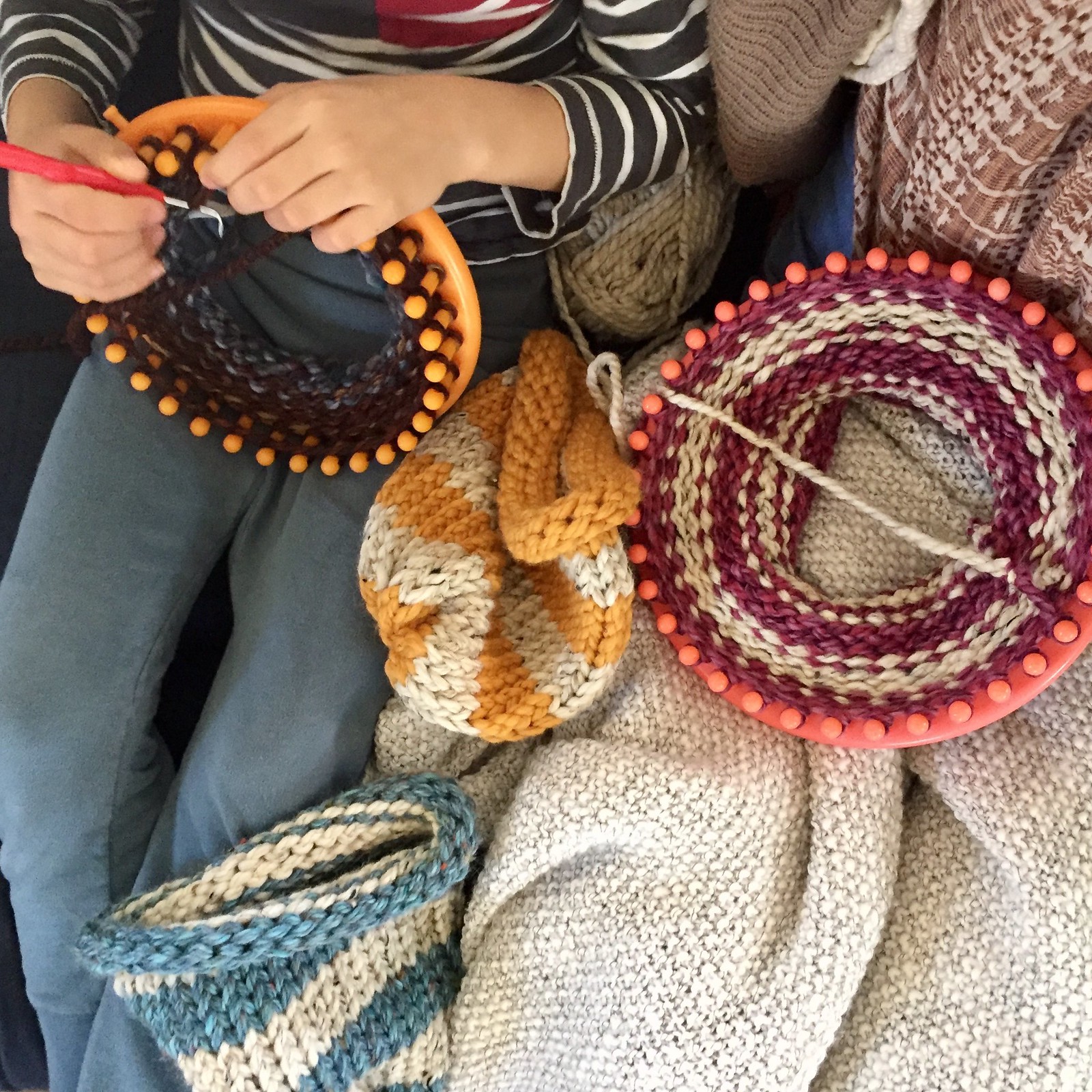Why Your Child Falls Apart After School, And 5 Ways to Help
 While I recently sat with a group of friends, all mothers with children ranging from 3 and 10 years old, I couldn't help but notice the similarities between all of our stories about the dreaded after-school slump. Regardless of the school - public, private, Montessori, language immersion - all of us had experienced the 3:30/4pm meltdown from our lovely offspring. Not even the ages of our children provided insight into what we were seeing, aside from the way the meltdown was expressed. Some form of "blowing off steam" or expression of disappointment, crying, whining, general feeling of being overwhelmed, or even epic tantrum (often after reports of a great day at school!) was inevitable almost as soon as they set foot in the car. The phenomenon is called "Restraint Collapse," and our Elementary Guides have been fielding many questions from parents about this topic. Why do our children melt down at the end of the school day? And what can we do to help them?
While I recently sat with a group of friends, all mothers with children ranging from 3 and 10 years old, I couldn't help but notice the similarities between all of our stories about the dreaded after-school slump. Regardless of the school - public, private, Montessori, language immersion - all of us had experienced the 3:30/4pm meltdown from our lovely offspring. Not even the ages of our children provided insight into what we were seeing, aside from the way the meltdown was expressed. Some form of "blowing off steam" or expression of disappointment, crying, whining, general feeling of being overwhelmed, or even epic tantrum (often after reports of a great day at school!) was inevitable almost as soon as they set foot in the car. The phenomenon is called "Restraint Collapse," and our Elementary Guides have been fielding many questions from parents about this topic. Why do our children melt down at the end of the school day? And what can we do to help them? First and foremost, a school day is full. It is full of physical, mental, emotional, and social stimulation - from the new lessons to the social conflict she may have with a friend, to presenting her best self to her classmates and guides. From a Montessori standpoint, this all has to do with a child's will (which we will completely cover in another blog post soon).A child, no matter what age, is usually well aware of the expectations of behavior and conduct within the classroom, and holding it together to remember those rules and self-regulate takes a tremendous amount of energy! Oftentimes when we pick up our children, they are not only physically exhausted, but they are mentally drained and very, very hungry!1. This brings us to the first thing we can do to help with this tricky time of day: provide a healthy snack. Something with protein that is low in sugar (such as some trail mix or nuts or a cheese stick, or apple slices with peanut butter) is an excellent choice, and can help restore some energy.2. If you have a car ride ahead of you, try putting on soft classical music or just keep the car quiet. This can be a time of decompression for your children. Keep in mind that some children, especially those who are more introverted, will not want to talk about how their day went (at least not right away). Try to respect her needs around this; give your child some time to just be quiet without the expectation of answering a million questions or making decisions about the rest of the day!
First and foremost, a school day is full. It is full of physical, mental, emotional, and social stimulation - from the new lessons to the social conflict she may have with a friend, to presenting her best self to her classmates and guides. From a Montessori standpoint, this all has to do with a child's will (which we will completely cover in another blog post soon).A child, no matter what age, is usually well aware of the expectations of behavior and conduct within the classroom, and holding it together to remember those rules and self-regulate takes a tremendous amount of energy! Oftentimes when we pick up our children, they are not only physically exhausted, but they are mentally drained and very, very hungry!1. This brings us to the first thing we can do to help with this tricky time of day: provide a healthy snack. Something with protein that is low in sugar (such as some trail mix or nuts or a cheese stick, or apple slices with peanut butter) is an excellent choice, and can help restore some energy.2. If you have a car ride ahead of you, try putting on soft classical music or just keep the car quiet. This can be a time of decompression for your children. Keep in mind that some children, especially those who are more introverted, will not want to talk about how their day went (at least not right away). Try to respect her needs around this; give your child some time to just be quiet without the expectation of answering a million questions or making decisions about the rest of the day! 3. Keep a few books in the car for your child to read or look at on the way home from school. This quiet time can prevent overstimulation and head off a few meltdowns before they happen. For little ones, consider a few audio books that have calm, soothing narrators. A few good ones we love are Sylvester and the Magic Pebble, Stone Soup, Little Bear's Visit, The Little House, Tiki Tiki Tembo, Brave Irene, Owl Moon, Frog and Toad Audio Collection, and The Very Quiet Cricket (along with any Eric Carle audiobooks!) 4. Consider limiting after-school activities and playdates and instead save them for the weekend. Ask yourself if you are scheduling after school activities because your child really wants to do them and seems genuinely happy to participate, or because you are anxious about "keeping up." If it is the latter, you may want to reexamine your after school routine and make some changes.In a 2013 NY Times article, Polly Young-Eisendrath, a clinical psychologist and the author of “The Self-Esteem Trap,” argued that too many activities may be a problem: "Children really need that time to lie around, play more freely and have periods when they are side-by-side with their parents in the same room, being ‘alone together.’ ” The point is, be conscious of what is right for your child and try to meet him where he is.
3. Keep a few books in the car for your child to read or look at on the way home from school. This quiet time can prevent overstimulation and head off a few meltdowns before they happen. For little ones, consider a few audio books that have calm, soothing narrators. A few good ones we love are Sylvester and the Magic Pebble, Stone Soup, Little Bear's Visit, The Little House, Tiki Tiki Tembo, Brave Irene, Owl Moon, Frog and Toad Audio Collection, and The Very Quiet Cricket (along with any Eric Carle audiobooks!) 4. Consider limiting after-school activities and playdates and instead save them for the weekend. Ask yourself if you are scheduling after school activities because your child really wants to do them and seems genuinely happy to participate, or because you are anxious about "keeping up." If it is the latter, you may want to reexamine your after school routine and make some changes.In a 2013 NY Times article, Polly Young-Eisendrath, a clinical psychologist and the author of “The Self-Esteem Trap,” argued that too many activities may be a problem: "Children really need that time to lie around, play more freely and have periods when they are side-by-side with their parents in the same room, being ‘alone together.’ ” The point is, be conscious of what is right for your child and try to meet him where he is. 5. Respect a child's "down time" after school. You may be amazed by what your child chooses to do in her free time. One day, she may feel like burning a lot of energy being physically active, while another she may choose to calmly draw pictures for an hour before dinner time. Children with free time after school learn to further self-regulate and read their bodies' cues, tuning in to what she or he needs in the moment, whether it's more social interaction with siblings or neighbors, some alone time in his room with a book and some music, or feeding her creative need by practicing a musical instrument, helping to cook dinner in the kitchen, or chatting with Mom or Dad about her day.Of course, not everyone will be heading home straight after school; there are plenty of children who spend time in aftercare while both parents work. Here at Villa di Maria, we have a wonderful team that respects children's needs: there is snack, there are daily activities, but most of what they do is free play under the supervision of adults they adore.It is important to remember that the main reason your child may melt down after school is because they are secure; this has a lot to do with the safe space you as parents provide for them. Children who present their best selves all day long, then suddenly open the floodgates as soon as they walk into the family home feel safe to do so. They know you will still love them, and they may even know that you will help them manage these feelings and provide hugs, kisses, and kind words no matter how grumpy and irritable they are.
5. Respect a child's "down time" after school. You may be amazed by what your child chooses to do in her free time. One day, she may feel like burning a lot of energy being physically active, while another she may choose to calmly draw pictures for an hour before dinner time. Children with free time after school learn to further self-regulate and read their bodies' cues, tuning in to what she or he needs in the moment, whether it's more social interaction with siblings or neighbors, some alone time in his room with a book and some music, or feeding her creative need by practicing a musical instrument, helping to cook dinner in the kitchen, or chatting with Mom or Dad about her day.Of course, not everyone will be heading home straight after school; there are plenty of children who spend time in aftercare while both parents work. Here at Villa di Maria, we have a wonderful team that respects children's needs: there is snack, there are daily activities, but most of what they do is free play under the supervision of adults they adore.It is important to remember that the main reason your child may melt down after school is because they are secure; this has a lot to do with the safe space you as parents provide for them. Children who present their best selves all day long, then suddenly open the floodgates as soon as they walk into the family home feel safe to do so. They know you will still love them, and they may even know that you will help them manage these feelings and provide hugs, kisses, and kind words no matter how grumpy and irritable they are.

